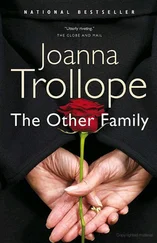Malaise. Intellectual disintegration. Epistemological meltdown. A strange rash on my arms that won’t be treated. Hypochondria of the undistilled sort. An aversion to conversation. Acedia plain and simple.
‘From what exactly? Really, Rosa, we must get to the bottom of this. You can’t just run out of a good job for no reason. Whatever the circumstances, you can’t do that.’
‘I’m not running out for no reason. There’s a compelling reason. Viz, I can’t possibly do the job.’
‘Why not?’
‘It’s reality, father,’ she said, reluctantly. ‘Reality is an empty abandoned town, as Musil said. Or was that imagination? Anyway, I don’t see how I can sit at my desk presenting reality to people, tailoring it for view, commenting glibly on daily events, when I have no idea what is going on. Do you, really? Gamma rays, for example, I know nothing about them. Any of them. Invisible forces, belief systems, philosophies of the way, I know nothing.’
‘Do you have the money saved to retrain?’
‘No, I don’t have any money saved.’
‘Rosa, that was extremely irresponsible of you.’
‘It’s terrible, I agree. I’ve been duped.’ The best scramble to something they call affluence, hysterical borrowing and material clutter. The worst — well, who was she to talk about the worst?
‘You could have bought a flat, if you’d wanted to,’ said her father. ‘Then at least you would have something to show for yourself.’
‘No, no, that doesn’t matter. The property ladder!’ And she thought, The property ladder is a grand illusion — everything dangling out of reach, and the ladder running up and up higher and higher to a grand crash, the Götterdämmerung of wage slaves, in which the liveried masses will fight a final battle for a small house to call their own and be slain in droves and burnt to a crisp. From the ashes of the wage slave apocalypse will arise a better world.
Meanwhile her father was saying, ‘It’s all so sudden, and extreme. Your mother wouldn’t have wanted you to throw everything away.’
‘Look, I’ll be honest, Dad,’ said Rosa. ‘I’m never going back to that stinking pigpen. I’m not snuffling for scraps any more. I’m off to find the grail. Il me semble que je serais bien, là òu je ne suis pas, as Sartre said. To be plain, I am discarding the Schweinerei . I will have no more of it. Lie your own lies, Dad. I’m off to the temple of truth, wherever the hell it is.’
‘Rosa, you should go and see a doctor,’ said her father.
‘That’s not on my list.’
‘Your response is disproportionate. Your grief is disproportionate, self-destructive. You refuse to accept that life is hard. Things are never perfect,’ he said. He was always ready with a platitude. He was good at them, quite adept in their use. Some days he talked in fluent cliché. But so did she. It was a genetic trait. Her family had been unoriginal for generations.
‘I understand. I’m one of the lucky ones’ — this she told herself a thousand times a day.
‘Well, now you’ll find out,’ said her father.
‘Find out what?’
‘If you are one of the lucky ones,’ he said.
*
The other immediate consequence — aside from those that revealed themselves later, including debt, social ostracism, and a few other minor trials — was the end of her relationship with Liam. That was the storm-lashed bark, but really she would have stepped off long ago had the weather been better, the sea altogether calmer. She should have left months ago; that would have been the decent thing to do. But she was weak and a coward, clinging on. Liam, by contrast, and surprisingly, became clinical, like a surgeon. He assessed her chances and decided she was not going to come through. On the day she left her job he came to her with a thin smile. ‘You did what?’ he said. ‘Really? You did that? Why did you do that?’ That! Of all the things she could have done. For Liam, it was the last straw. He wanted to cast her out, denounce her. Then he shook his head. He gave her a profound look. It was an illusion, but Liam was a proper denizen, a firm believer in progress. ‘Let’s not discuss it,’ he said. ‘Let’s eat.’ He was terse that evening, and she wondered what he was about to say. He usually judged her harshly; he liked to tell her she was self-dramatising and, sometimes, obscene. He threw her a sortie of stern glances, pierced her with harsh looks, and turned to his food. Recently he had stopped finding her funny. They were both misbehaving at the time; neither of them was being reasonable. Rosa had an excuse, she had the stark fact of recent bereavement, loss of meaning, acedia and the rest, but really she hadn’t been reasonable for years. Their life together looked impermanent. Things were definitely going down the pan. She didn’t blame it on Liam. But she hadn’t thought about it too hard. She had left her job, and now, she thought, she would get to grips with everything, all the things she hadn’t been thinking clearly about. She had begun to mistrust herself. Her own self — that was a schizophrenic state, a piece of blatant nonsense. She needed to change her circumstances, but she was lazy and her habits were ingrained. Even so, she was sanguine as she sat there, casting glances across the table. She was upbeat, slightly restless. It was the summer, and she always liked the summer. She had walked out of the office, never to return, but she enjoyed the shifting of the seasons. Her plans were basic at the time, she was thinking of deep blue skies and how much she liked wearing shorts. She was planning evenings at the Windsor Castle pub, sitting in the garden with friends drinking wine. Saturday mornings, reading papers on Westbourne Grove. The season, she imagined, would run along as the seasons had been running along for years. No one really worked in the summer. They went to summer parties, drank wine from the ritual plastic goblet, and talked about sport. She would take up the guitar again. She would bake bread and cultivate window boxes. She would train rigorously and run every day. By the autumn she would be fit and lively again. She was only relieved she didn’t have to go to work the next day.
*
Liam was quiet and watchful for a week, and then he said it all. It was a fine June evening when he spilled it. On that evening, like so many others, they were having a quiet meal. The only sound across the silence-shrouded table was the click of cutlery. They were like a pair of venerable cockroaches, dining together. She had cooked fish and vegetables with sauce from a packet. She hadn’t taken too much time over the details. They were living in a high-rise block by Notting Hill tube. From their living room they could see the city, glowing and sparkling beneath, the cars weaving patterns of light, the buildings rising towards the centre. There was an orange glow hanging over it all, a dusty halo. The evening was crisp, the air was thin, and the noise of traffic filled the room.
Liam had no sense of occasion. He disliked high drama. He despised parties; he refused even to celebrate his own birthday. He was deeply uncomfortable at weddings. He thought it was all a fuss, a suspicious fuss. So he had hardly prepared a violent scene. He was dressed in his usual innocuous way: trousers in a cotton fabric, a long-sleeved blue T-shirt. He hated to be conspicuous. He never raised his voice and he disliked confrontations; it was why he struggled in his job. He could generally see the other side of an argument. He called it negative capability and referred proudly to Keats. She thought it was cowardice. They were all afraid, Rosa was afraid of a lot of things, most of them inchoate or unmentionable, but Liam was afraid of his boss and this enraged her. He mostly didn’t try. He assumed that his opponents were benighted, but he lacked the will to convert them. He’d suffered a few minor hitches, the painful discrepancy between aspiration and realisation. Still, he was successful enough as a political lobbyist. He had a firm handshake; he looked good in a suit. He was plausible whatever he did.
Читать дальше












